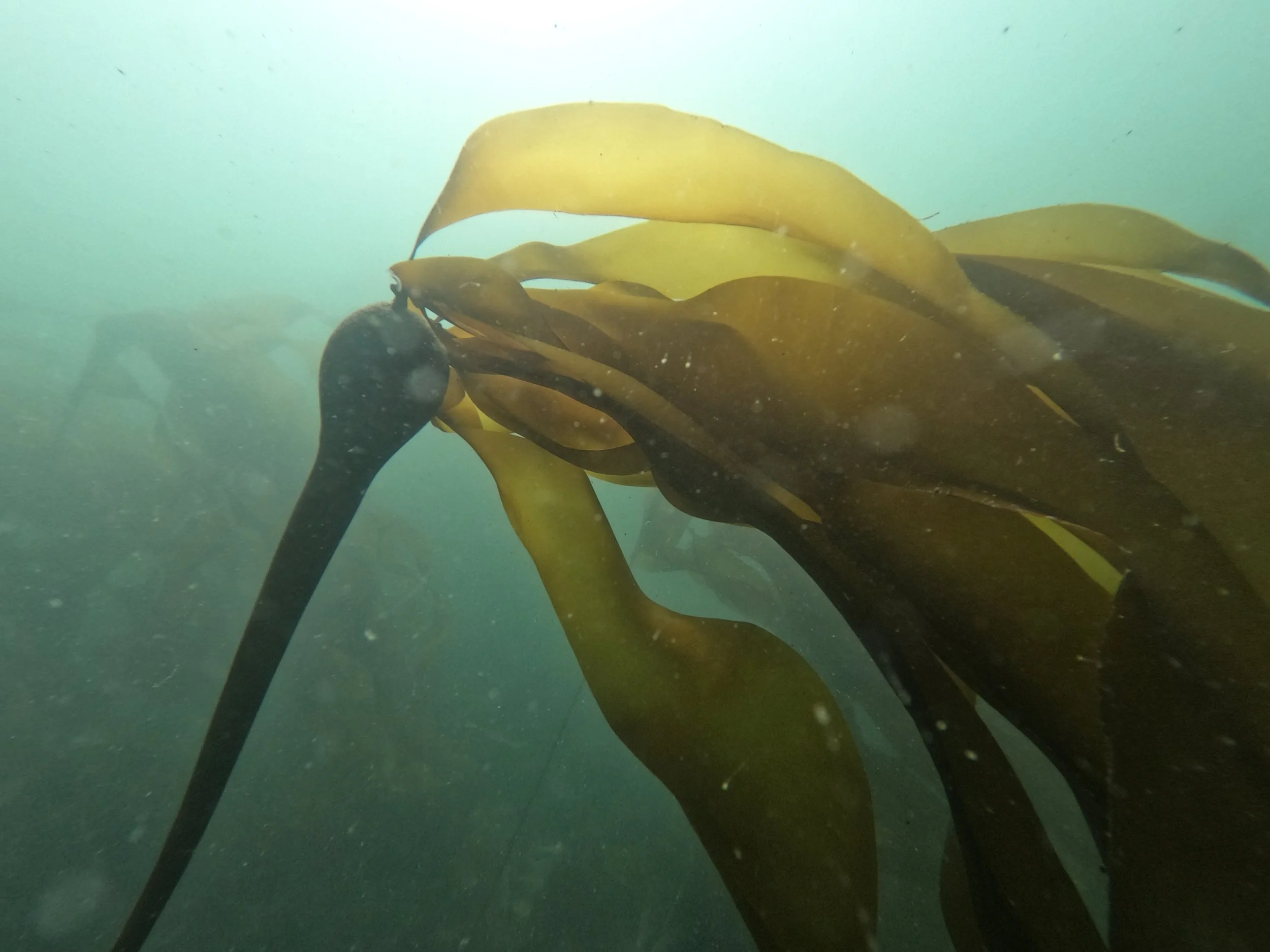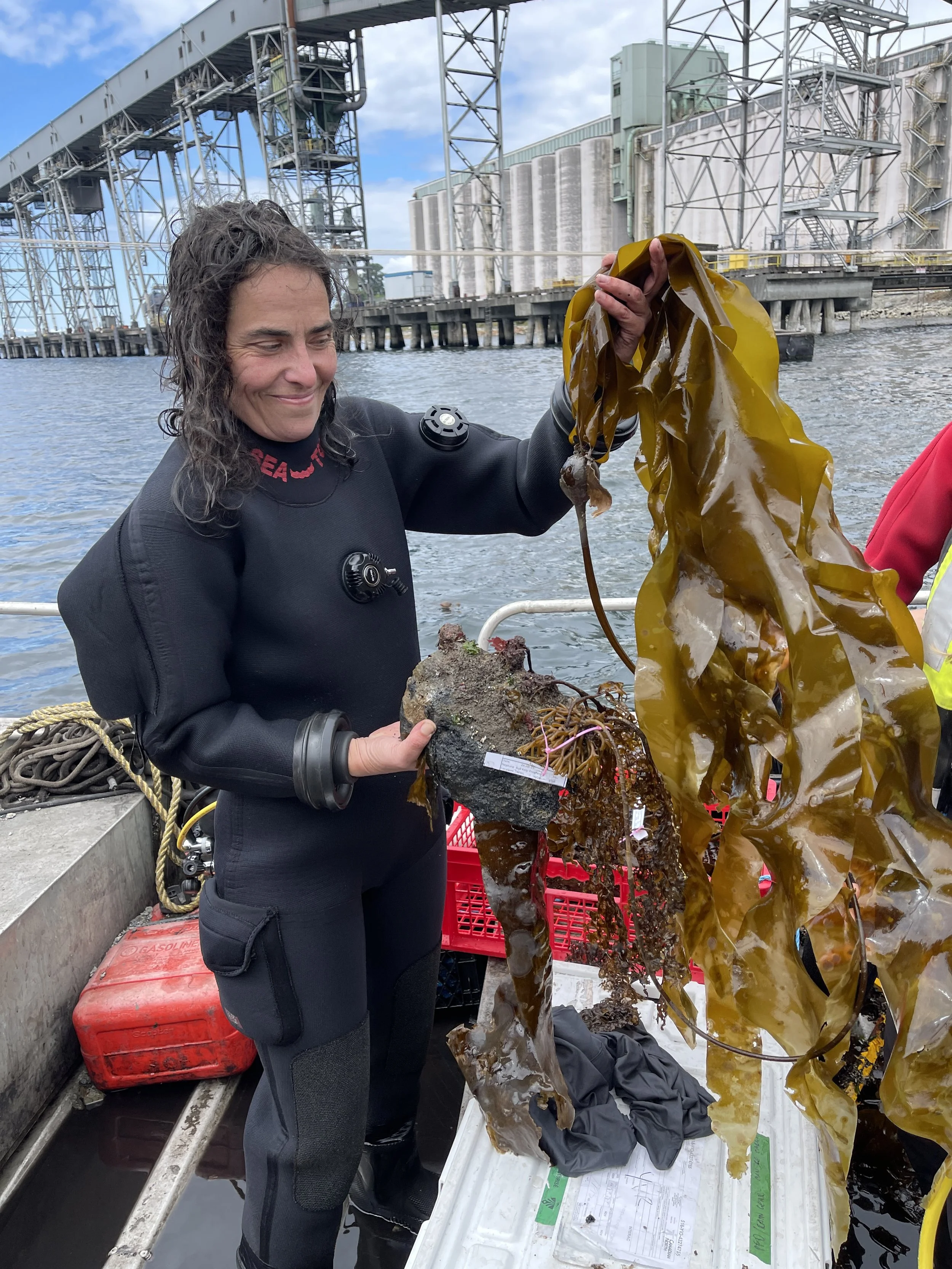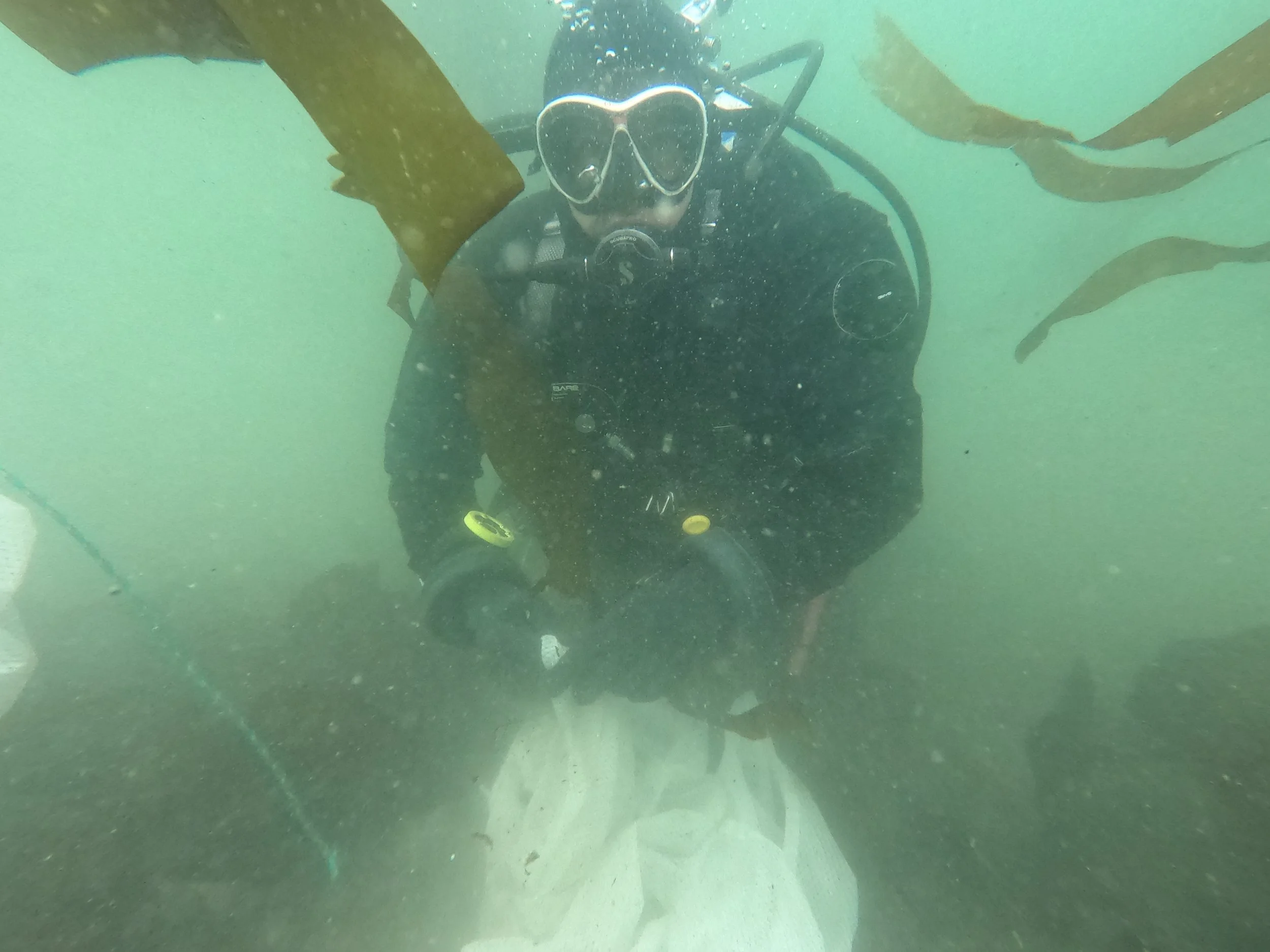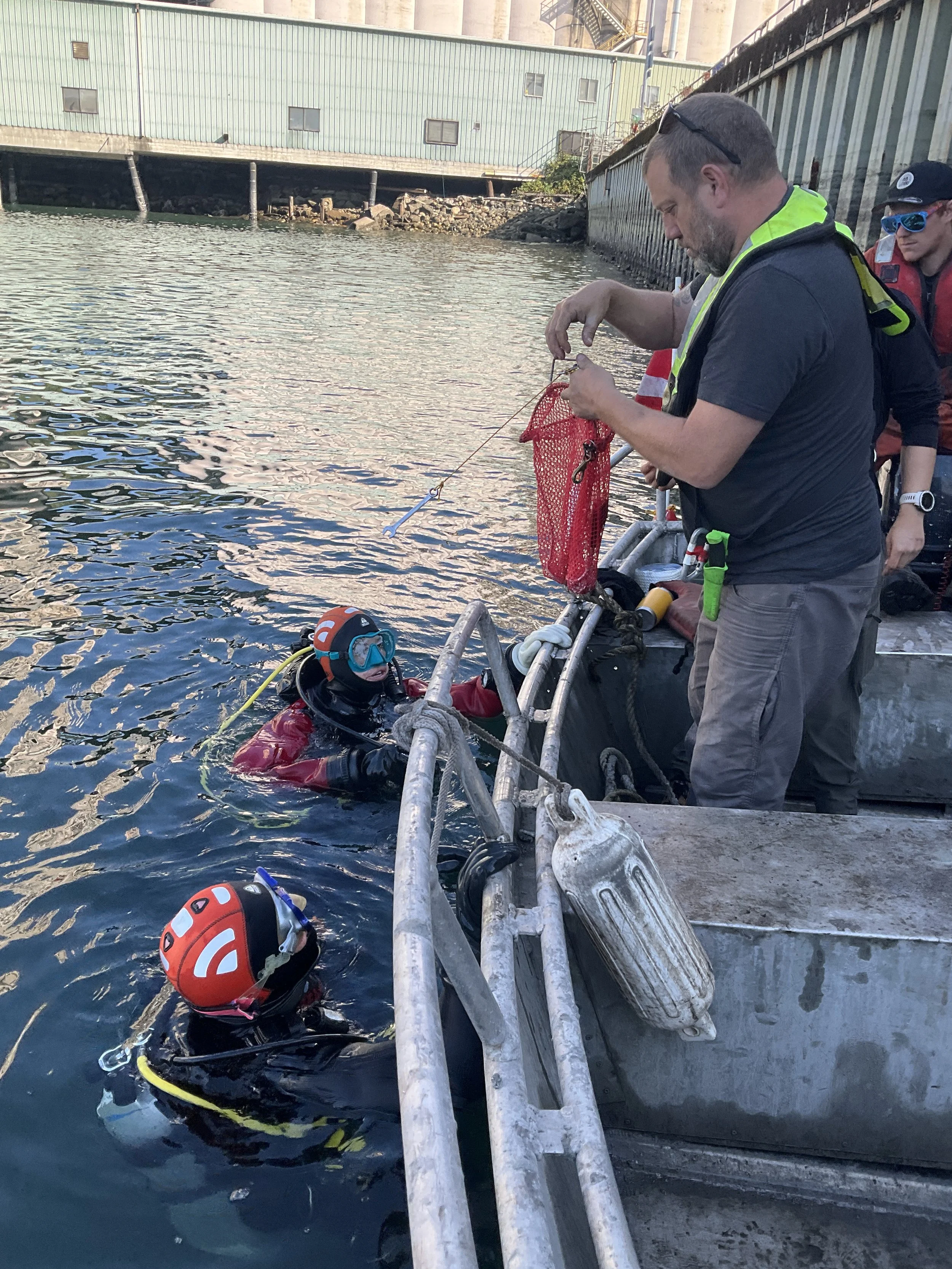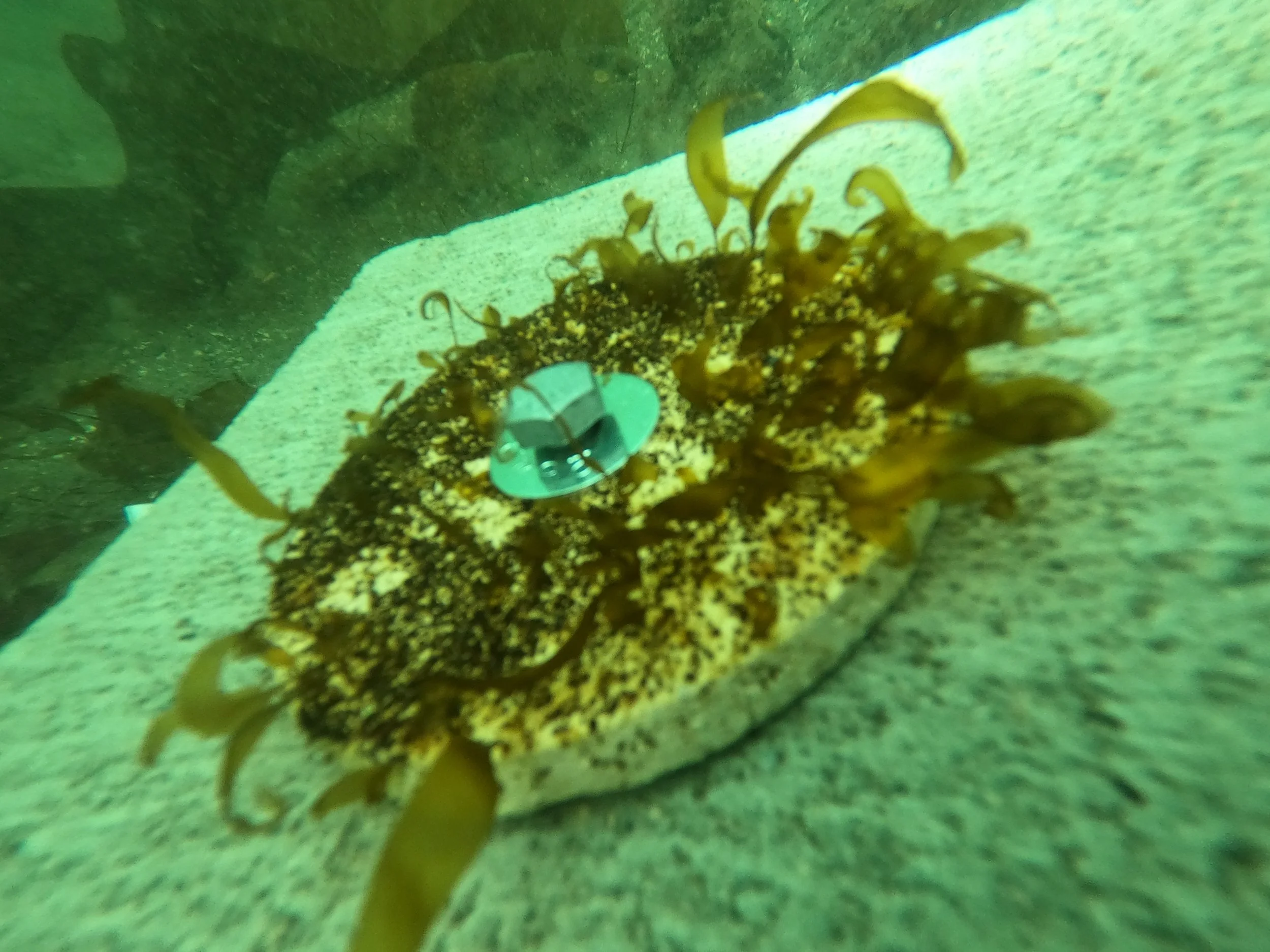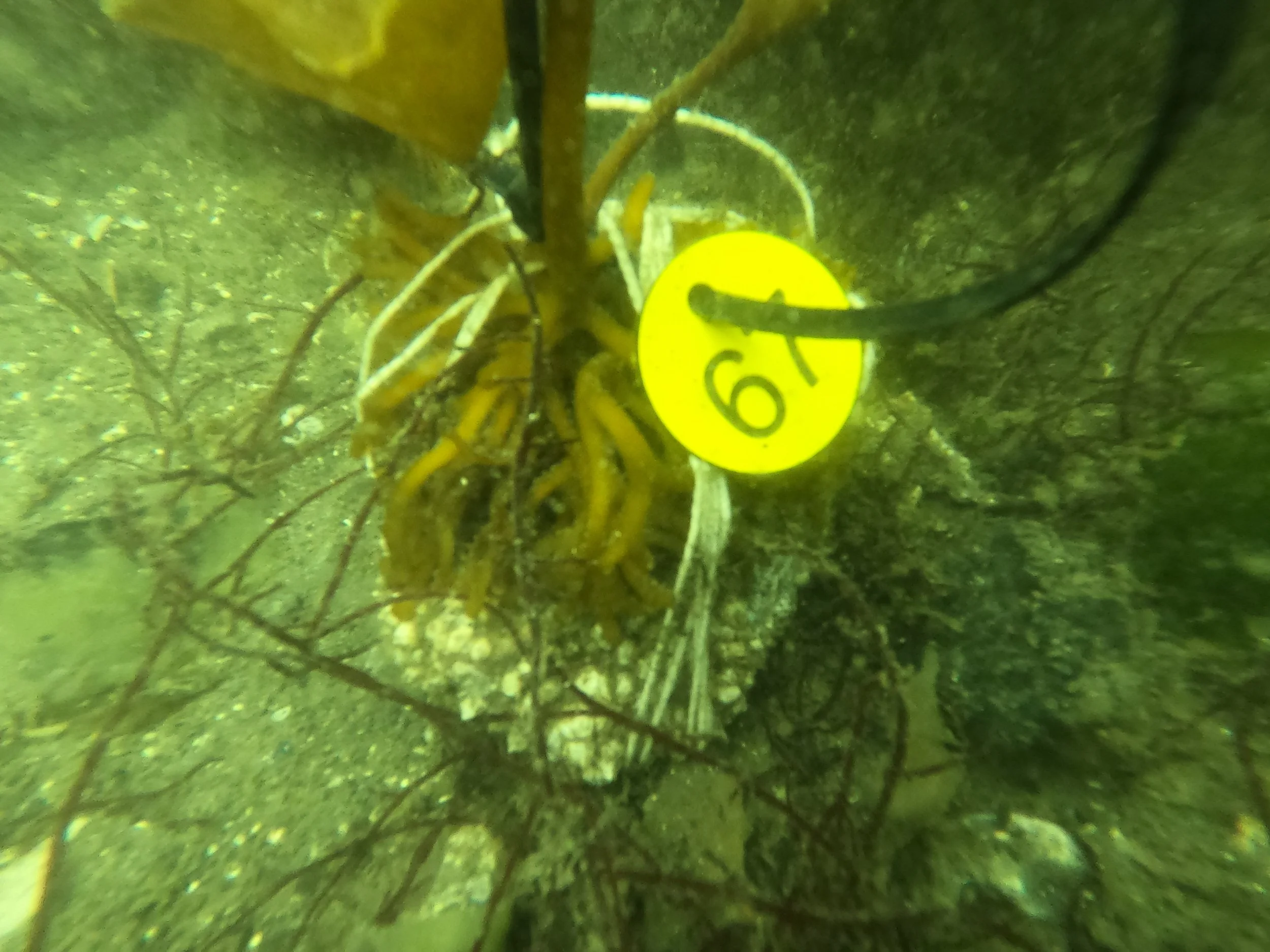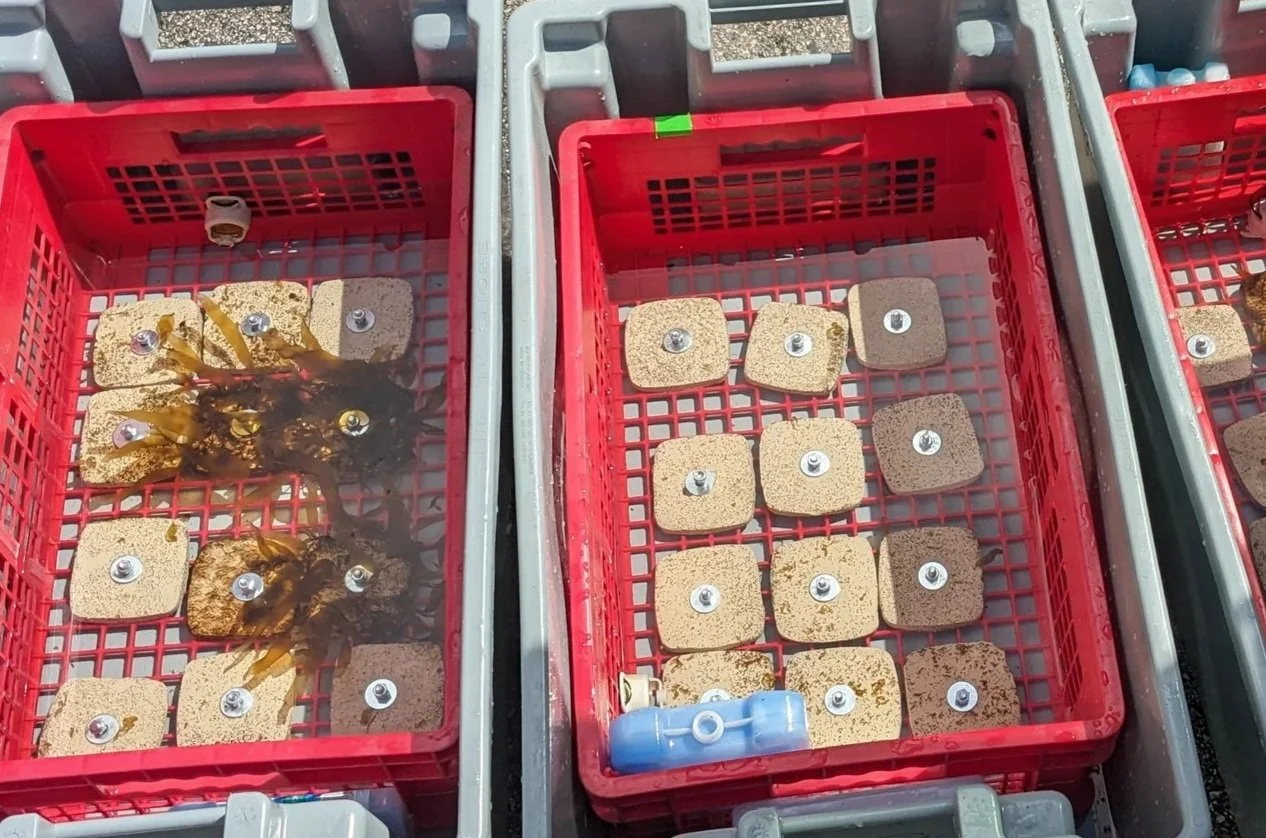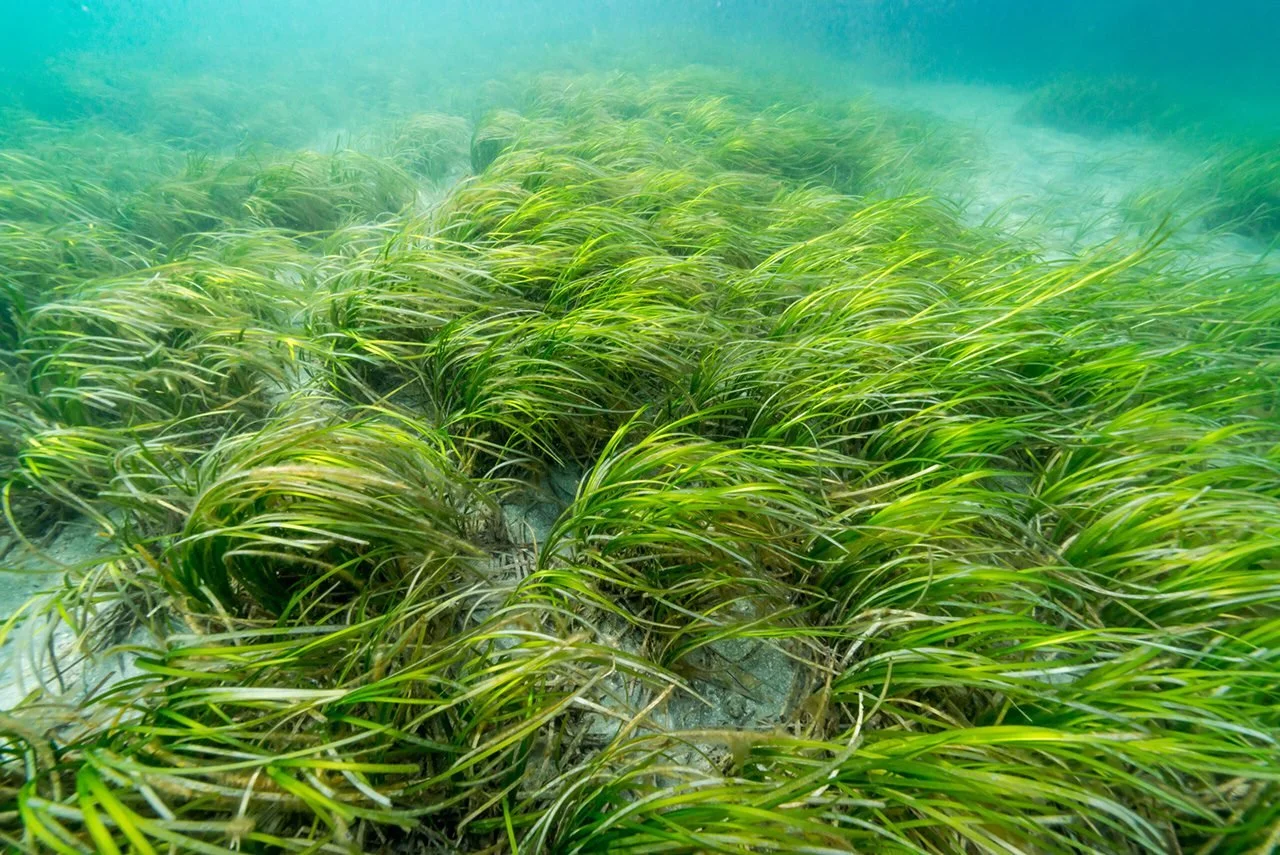
Marine Vegetation Surveys

Dynamic Ocean Consulting delivers professional surveys of underwater marine vegetation—including kelp species (such as bull kelp and sugar kelp) and eelgrass—across Canadian waters. These surveys support baseline characterization, monitoring of change, habitat assessment for fish and invertebrates, and regulatory or restoration-driven permitting needs.
Why Marine Vegetation Matters
Marine vegetation such as kelp forests and eelgrass beds provide vital ecosystem services:
They act as nurseries and refuge for juvenile fish, shellfish and invertebrates.
They contribute to carbon sequestration, shoreline stability and water-quality support.
They are sensitive to changes in substrate, light, water quality, temperature, harvesting and mechanical disturbance.
In Canada, eelgrass is designated as an Ecologically Significant Species (ESS) under DFO frameworks.
Understanding the condition, extent and trends of these habitats is critical for environmental assessments, permitting, mitigation and restoration initiatives.
Our Survey Approach
We offer a full suite of field and analytical services tailored to marine vegetation surveys:
Diverse Platform Use: We deploy divers, high-resolution video and photographic transects, side-scan or multibeam sonar where appropriate, and aerial or UAV imagery to capture vegetation extent and health.
Habitat Mapping & Change Detection: We map kelp and eelgrass beds, quantify biomass or density where feasible, monitor trends or pre/post-project changes, and support offsetting or restoration tracking.
Restoration-Ready Data: We collaborate with universities, Indigenous groups and industry partners to provide datasets that are compatible with restoration programs, such as transplanting bull kelp or eelgrass re-establishment.
Regulatory Integration: Our survey design, data collection and reporting are aligned with Canadian federal requirements (via DFO) and broader best practices for near-shore vegetation monitoring. For example, the “Kelp Monitoring Roadmap” highlights the importance of linking habitat drivers to indicators and sampling designs.
Typical Survey Components
Site reconnaissance & habitat classification (substrate, wave exposure, light regime)
Transect or grid-based sampling using divers or remotely operated systems for video/photo documentation
Canopy and sub‐canopy mapping of kelp forests (e.g., bull kelp) and eelgrass beds using sonar, video or aerial imagery
Data processing & GIS deliverables including maps of vegetation extent, density indices, temporal comparisons
Reporting summarizing vegetation status, trends, implications for habitat function, and recommendations for mitigation or restoration
Deliverables
Maps (GeoTIFF, shapefile/KMZ) of kelp or eelgrass bed extent
Photo logs and video frames with annotation of substrate, vegetation type and percent cover
Summary tables of density/biomass indicators (where collected)
Interpretive narrative aligned to regulatory/research frameworks
Recommendations for monitoring frequency, restoration potential, or offsetting strategy
Why Choose Dynamic Ocean Consulting?
Proven field experience in Canadian coastal and estuarine environments
Strong links to academic, Indigenous and industry-led restoration programs
Data collection and reporting processes designed for regulatory, research and industry applications
Commitment to safety, data quality and science-based integrity
Contact
Ready to discuss your marine vegitation survey needs? Whether you are planning baseline sampling, or long-term ecological studies, contact us to explore a customised survey solution and receive a proposal. Contact Us.


